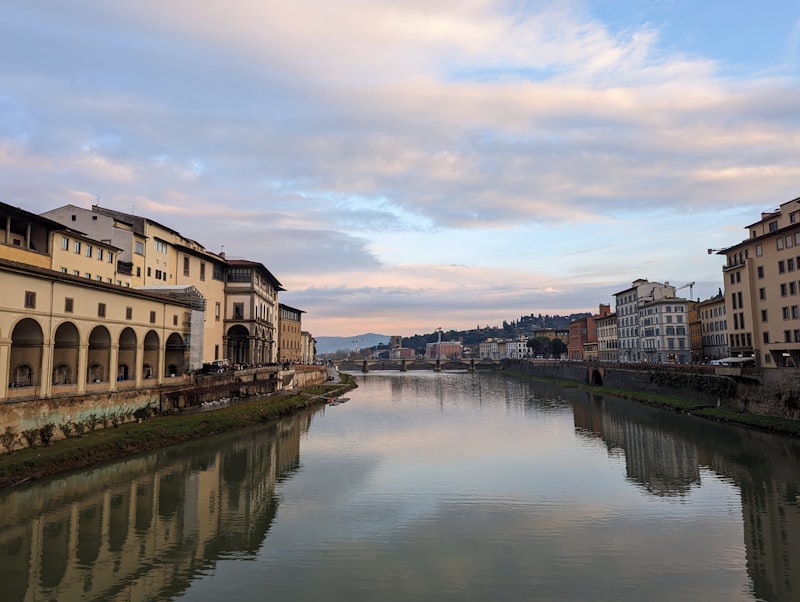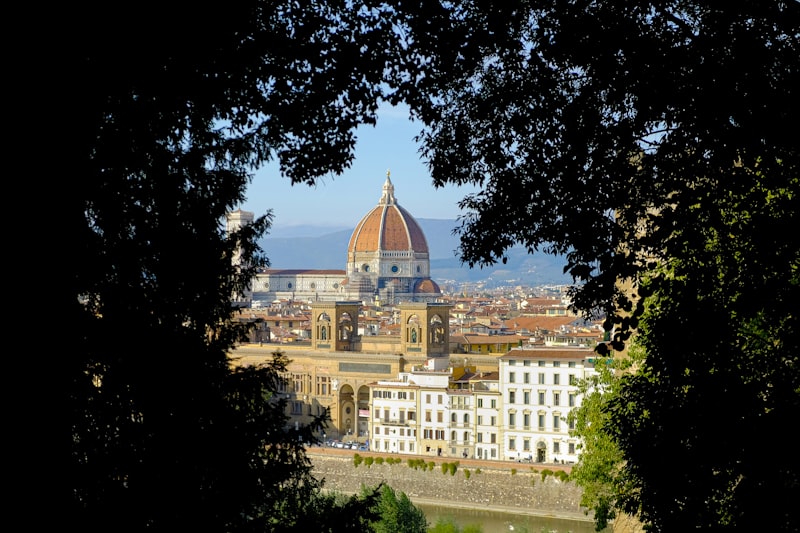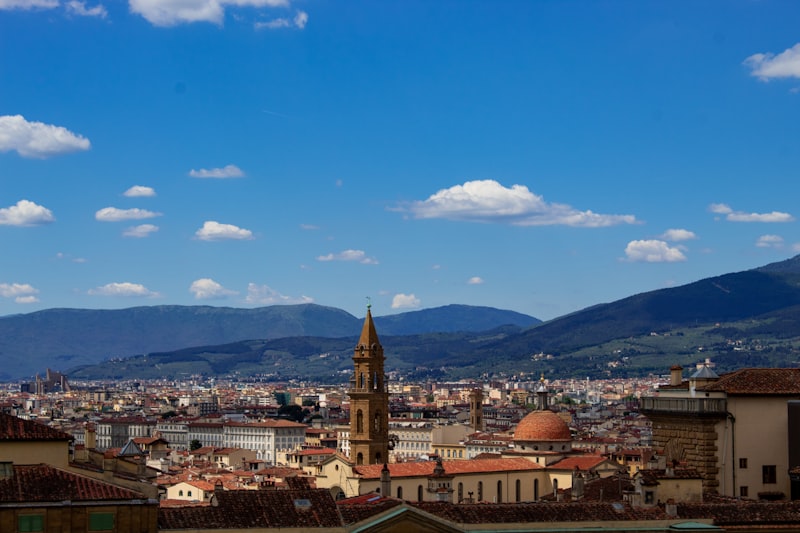In the realm of literature, dystopian science fiction stories hold a unique allure, painting vivid portraits of societies plagued by oppression, technological overreach, or environmental decay. These narratives not only entertain but also provoke thought, offering a glimpse into potential futures shaped by current societal trends.
One of the most iconic examples is George Orwell’s “1984”, a chilling depiction of a totalitarian regime where surveillance and propaganda dominate every aspect of life. Orwell’s portrayal of a dystopian world serves as a stark warning about the dangers of unchecked government power and loss of personal freedom.
Another compelling work is Aldous Huxley’s “Brave New World”, which presents a society where scientific advancements have eliminated suffering and hardship, but at the cost of individuality and free will. Huxley explores themes of consumerism, social control, and the ethics of genetic engineering in a world where happiness is manufactured and conformity is enforced.
Margaret Atwood’s “The Handmaid’s Tale” offers a feminist perspective on dystopia, imagining a future where women are reduced to reproductive servitude in a patriarchal theocracy. Atwood’s narrative is hauntingly plausible, raising questions about gender roles, religious extremism, and the erosion of human rights.
For those intrigued by cyberpunk themes, William Gibson’s “Neuromancer” remains a seminal work. Set in a gritty, high-tech future where artificial intelligence and virtual reality reign supreme, Gibson’s narrative explores themes of corporate power, identity, and the merging of human and machine.
In recent years, works like Suzanne Collins’ “The Hunger Games” trilogy have captured global audiences with their portrayal of a brutal, post-apocalyptic world where children are forced to fight to the death for entertainment. Collins’ series delves into themes of inequality, media manipulation, and the resilience of the human spirit.
Dystopian science fiction continues to evolve, reflecting contemporary anxieties and technological advancements while challenging readers to confront uncomfortable truths about society’s trajectory. These stories compel us to consider the consequences of unchecked power, technological progress, and societal complacency.
This article aims to capture the essence of each mentioned dystopian sci-fi story while maintaining a conversational tone and engaging the reader with thought-provoking themes and narratives.
Top 10 Dystopian Sci-Fi Classics That Predicted the Future
Take George Orwell’s “1984,” a chilling portrayal of a totalitarian regime where surveillance is omnipresent, altering the very essence of privacy. Orwell’s vision, though penned in the mid-20th century, rings with uncomfortable truths in today’s age of digital surveillance and data privacy concerns. Similarly, Aldous Huxley’s “Brave New World” envisages a society engineered for stability, where genetic manipulation and psychological conditioning dictate social order and individual destiny.
Moving forward, Philip K. Dick’s “Do Androids Dream of Electric Sheep?” explores the implications of artificial intelligence and questions what it means to be human in a world where synthetic beings are indistinguishable from their organic counterparts. The novel’s adaptation into the iconic film “Blade Runner” further cemented its influence on popular culture and its prescient commentary on humanity’s relationship with technology.

Ray Bradbury’s “Fahrenheit 451” warns against a society where books are banned, and critical thinking is suppressed to maintain societal conformity. The novel’s exploration of censorship and intellectual freedom resonates deeply in an era marked by debates over misinformation and freedom of expression on digital platforms.
These literary masterpieces, including works by Margaret Atwood, H.G. Wells, and Ursula K. Le Guin, continue to captivate readers with their stark visions of future societies. Each narrative challenges readers to contemplate the consequences of technological advancement, social engineering, and unchecked power. As we navigate an increasingly complex world shaped by rapid technological progress and societal shifts, these dystopian classics serve as poignant reminders of the potential consequences of our actions today.
Unveiling the Most Haunting Dystopian Sci-Fi Novels of All Time
Imagine a world where reality bends and crumbles, where societies are twisted into unrecognizable forms, and the future is a haunting reflection of our darkest fears. Dystopian sci-fi novels have long captivated readers with their chilling portrayals of alternative futures. These narratives delve deep into the human psyche, questioning the very essence of civilization and the consequences of unchecked power.
One of the most iconic works in this genre is George Orwell’s “1984”. Set in a totalitarian regime where Big Brother watches every move, Orwell paints a grim picture of surveillance and thought control, highlighting the fragility of freedom in the face of oppressive authority.
Another standout is Aldous Huxley’s “Brave New World”, where society is meticulously engineered into a hierarchy of genetically modified citizens. Here, happiness is manufactured, individuality suppressed, and the price of conformity exacted in a world devoid of true human connection.
Margaret Atwood’s “The Handmaid’s Tale” offers a chilling glimpse into a future where women are reduced to reproductive vessels under a patriarchal theocracy. Atwood’s prose is both poignant and unsettling, reflecting on themes of power, identity, and resistance in a world reshaped by extremism.
In “Fahrenheit 451” by Ray Bradbury, books are outlawed, and firemen burn any remaining literature. Bradbury’s cautionary tale explores the dangers of censorship and intellectual suppression, urging readers to cherish the freedom of thought and expression.
Lastly, “Neuromancer” by William Gibson introduces the cyberpunk genre, where a washed-up hacker is hired for a seemingly impossible job in a dystopian future dominated by artificial intelligence and corporate greed. Gibson’s visionary narrative anticipates the rise of cyberspace and its impact on society.
Journey Through the Bleak Worlds: Best Dystopian Sci-Fi Epics

Imagine a world where oppressive regimes rule with an iron fist, and technology has become a double-edged sword. Dystopian sci-fi epics delve deep into these themes, exploring the consequences of unchecked power and societal decay. They challenge our perceptions of progress and warn of the dangers lurking within our own ambitions.
In these narratives, authors create vivid landscapes where cities are desolate wastelands or gleaming fortresses of oppression. They paint a picture of a future where humanity struggles against forces beyond its control, grappling with ethical dilemmas and existential crises. It’s a world where survival often means sacrificing one’s ideals or confronting the harsh realities of a fractured society.
What makes dystopian sci-fi epics so compelling is their ability to mirror our own fears and anxieties about the future. They ask us tough questions about the price of progress and the moral implications of technological advancements. Are we heading towards a utopia or a dystopia? These stories challenge us to consider the consequences of our actions today on the world of tomorrow.
From classics like George Orwell’s “1984,” where Big Brother watches every move, to contemporary masterpieces like Margaret Atwood’s “The Handmaid’s Tale,” where women’s rights are stripped away in a patriarchal regime, each story offers a unique perspective on the dystopian genre. They force us to confront uncomfortable truths and contemplate the fragile nature of society.
As readers, we are drawn into these narratives by their compelling characters and gripping plotlines. We root for the underdog fighting against the odds or question the motives of those in power. These stories resonate because they reflect universal themes of power, control, and the struggle for freedom.
Dystopian sci-fi epics continue to captivate audiences because they speak to our deepest fears and hopes for the future. They challenge us to think critically about the world we live in and imagine the consequences of our choices. Whether exploring futuristic landscapes or dissecting the human psyche, these stories leave an indelible mark on our minds, urging us to contemplate the path ahead.
Must-Read Dystopian Sci-Fi Books That Resonate Today
George Orwell’s “1984” stands as a chilling reminder of the dangers of totalitarianism and surveillance. Set in a dystopian future where Big Brother watches every move, it explores themes of propaganda and individual freedom with a haunting prescience.

Margaret Atwood’s “The Handmaid’s Tale” paints a harrowing picture of a theocratic society where women are reduced to reproductive slaves. Its exploration of gender roles, autonomy, and resistance remains as relevant today as when it was first published.
“A Brave New World” by Aldous Huxley presents a society where technology and genetic engineering have created a superficially perfect world, but at the cost of individuality and emotion. Huxley’s critique of consumerism and social control feels eerily familiar in our age of mass production and social media.
Philip K. Dick’s “Do Androids Dream of Electric Sheep?” delves into questions of identity and humanity in a post-apocalyptic world. The novel, which inspired the film “Blade Runner,” challenges readers to reconsider what it means to be human in an increasingly mechanized society.
Ray Bradbury’s “Fahrenheit 451” warns against the dangers of censorship and intellectual complacency. In a world where books are banned and critical thinking suppressed, Bradbury underscores the importance of free thought and the power of literature to provoke change.
Octavia Butler’s “Parable of the Sower” offers a stark vision of environmental degradation and social collapse in 2020s America. Through the eyes of its resilient protagonist, Butler examines themes of community, survival, and the search for hope amidst chaos.
These dystopian sci-fi classics continue to captivate readers with their provocative ideas and timely warnings. As we navigate an uncertain future filled with rapid technological advancement and societal challenges, these books serve as poignant reminders of the importance of vigilance, empathy, and the enduring power of the human spirit.
Exploring the Dark Realities: Best Dystopian Sci-Fi Novels Ever Written
Dystopian sci-fi novels transport us to eerie, thought-provoking worlds where the fabric of society has unraveled, often reflecting our deepest fears and warnings about the future. These gripping tales delve into bleak futures where governments oppress, technology dominates, and humanity struggles for survival. Let’s embark on a journey through some of the most compelling dystopian novels ever penned.
One of the cornerstones of the genre is George Orwell’s “1984.” Set in a totalitarian regime where Big Brother surveils every move, Orwell paints a haunting picture of a society stripped of privacy and individuality. The novel’s concepts of thought control and propaganda remain chillingly relevant today.
Margaret Atwood’s “The Handmaid’s Tale” offers a harrowing glimpse into a patriarchal dystopia where women are reduced to reproductive slaves. Atwood’s stark prose and the protagonist’s inner turmoil vividly depict the oppressive regime of Gilead, serving as a stark warning about the dangers of religious extremism and totalitarianism.
In Aldous Huxley’s “Brave New World,” society is engineered for stability and happiness through genetic manipulation and psychological conditioning. Yet, beneath its facade of harmony lies a disturbing lack of freedom and individuality. Huxley’s critique of consumerism and technology’s role in dehumanizing society resonates profoundly in today’s world of advancing biotechnology.
Ray Bradbury’s “Fahrenheit 451” explores a future where books are banned and “firemen” burn any that are found. Through protagonist Guy Montag’s journey from conformity to rebellion, Bradbury questions the consequences of censorship and the power of literature to awaken critical thinking.
In Suzanne Collins’ “The Hunger Games,” dystopia meets the brutality of reality TV as impoverished districts are forced to send children to fight to the death in a televised spectacle. Collins’ narrative challenges societal apathy and explores themes of survival, sacrifice, and rebellion.
These novels not only entertain but also serve as mirrors to our own world, prompting reflection on issues such as government control, surveillance, social inequality, and the ethical implications of technological advancement. Through their dark narratives and vivid characters, these dystopian classics continue to captivate readers, urging us to question the path of our own civilization and the consequences of our actions.
Visionary Tales: 10 Dystopian Sci-Fi Stories That Changed Literature
Imagine a world where reality bends, and societies are twisted reflections of our own. Dystopian science fiction has long captivated readers with its stark warnings and imaginative scenarios. From bleak futures to totalitarian regimes, these narratives offer profound insights into human nature and the consequences of unchecked power. Let’s dive into 10 visionary tales that have reshaped literature as we know it.
-
1984 by George Orwell: Orwell’s chilling depiction of a totalitarian regime where Big Brother watches your every move remains a timeless classic.
-
Brave New World by Aldous Huxley: Huxley’s world of genetic engineering and psychological manipulation paints a haunting picture of a society controlled by pleasure and conformity.
-
Fahrenheit 451 by Ray Bradbury: In a future where books are banned and “firemen” burn them, Bradbury explores the dangers of censorship and intellectual suppression.
-
The Handmaid’s Tale by Margaret Atwood: Atwood’s tale of a theocratic dystopia where women are reduced to reproductive vessels is as relevant today as ever.
-
Neuromancer by William Gibson: A seminal work in cyberpunk fiction, Gibson’s novel explores a gritty future where hackers navigate a virtual landscape of corporate intrigue.
-
Snow Crash by Neal Stephenson: Stephenson blends virtual reality with a fractured society, creating a fast-paced world where ancient myths and futuristic tech collide.
-
The Hunger Games by Suzanne Collins: Collins’ series thrusts readers into a brutal future where children fight to the death for televised entertainment, critiquing voyeurism and inequality.
-
Never Let Me Go by Kazuo Ishiguro: Ishiguro’s poignant novel delves into the ethics of cloning and the search for identity in a world where humanity’s darker impulses prevail.

The Road by Cormac McCarthy: McCarthy’s post-apocalyptic journey of a father and son through a ravaged landscape is a haunting meditation on survival and hope.
-
Oryx and Crake by Margaret Atwood: Atwood returns with a cautionary tale of genetic engineering gone awry, exploring the consequences of playing god with life itself.
These dystopian sagas aren’t just cautionary tales; they’re mirrors reflecting our own fears and aspirations. Each story challenges us to confront uncomfortable truths about society, technology, and human nature. As you immerse yourself in these visionary narratives, ask yourself: what kind of future do we want to build?
Dive Into Tomorrow’s Nightmares: Essential Dystopian Sci-Fi Reads
In the realm of literature, dystopian science fiction stands as a compelling genre that peers into dark, speculative futures. These narratives often serve as cautionary tales, blending futuristic technology with societal breakdowns to provoke thought and reflection. Whether you’re a seasoned sci-fi enthusiast or a newcomer to the genre, exploring essential dystopian reads can be both thrilling and enlightening.
Imagine a world where governments have absolute control, where technology dominates every aspect of life, or where humanity faces extinction. These are the haunting themes that define dystopian fiction, offering readers a glimpse into possible futures shaped by oppression, surveillance, and the struggle for survival.
Books like George Orwell’s “1984” instantly come to mind, painting a grim picture of a totalitarian regime that monitors every move its citizens make. Orwell’s portrayal of Big Brother and the Thought Police remains chillingly relevant, sparking discussions about privacy and the power of unchecked authority.
For those craving a narrative that delves into the consequences of environmental neglect, Margaret Atwood’s “The Handmaid’s Tale” offers a harrowing vision of a society where women are stripped of their rights and used solely for reproduction. Atwood’s prose, vivid and haunting, invites readers to ponder the fragility of human rights in the face of religious extremism and ecological disaster.
If technology and artificial intelligence are more to your liking, Aldous Huxley’s “Brave New World” presents a world where genetic engineering and psychological manipulation have created a society devoid of individuality and emotion. Huxley’s depiction of a controlled utopia-turned-dystopia challenges readers to consider the ethical implications of scientific progress and societal conformity.
Stepping into the realm of modern dystopian fiction, books like “The Hunger Games” by Suzanne Collins transport readers to a post-apocalyptic world where children are pitted against each other in a televised fight to the death. Collins weaves together themes of survival, sacrifice, and rebellion, crafting a narrative that resonates with audiences of all ages.
As you venture into the realm of dystopian literature, each book serves not only as a captivating story but also as a mirror reflecting our own fears and aspirations. These essential reads invite readers to question the trajectory of our society, encouraging us to contemplate the consequences of our actions and the power structures that shape our world.
Frequently Asked Questions
What are the key themes in dystopian sci-fi literature?
Explore key themes in dystopian sci-fi literature, including societal control, surveillance, technology’s dark side, rebellion against oppressive regimes, and the human condition under extreme conditions.
What are some modern must-read dystopian sci-fi books?
Explore a curated list of essential dystopian sci-fi novels that captivate with futuristic worlds and thought-provoking themes, perfect for fans of speculative fiction.
How do dystopian sci-fi stories reflect societal concerns?
Explore how dystopian sci-fi stories mirror societal anxieties and challenges through speculative futures, highlighting themes of power, technology, and human nature. Understand the impact of these narratives on cultural discourse and their relevance in examining contemporary issues.
What are some classic dystopian sci-fi novels?
Explore timeless dystopian sci-fi novels that delve into bleak futures and societal control, such as George Orwell’s ‘1984,’ Aldous Huxley’s ‘Brave New World,’ and Ray Bradbury’s ‘Fahrenheit 451.’ These classics depict chilling visions of oppressive regimes, surveillance, and the struggle for individual freedom.
What defines a dystopian sci-fi story?
Discover what makes a dystopian sci-fi story unique. Learn about the defining characteristics that set these narratives apart, including oppressive societies, advanced technology, and themes of social control and rebellion. Explore how dystopian sci-fi often serves as a cautionary tale about the future of humanity.


